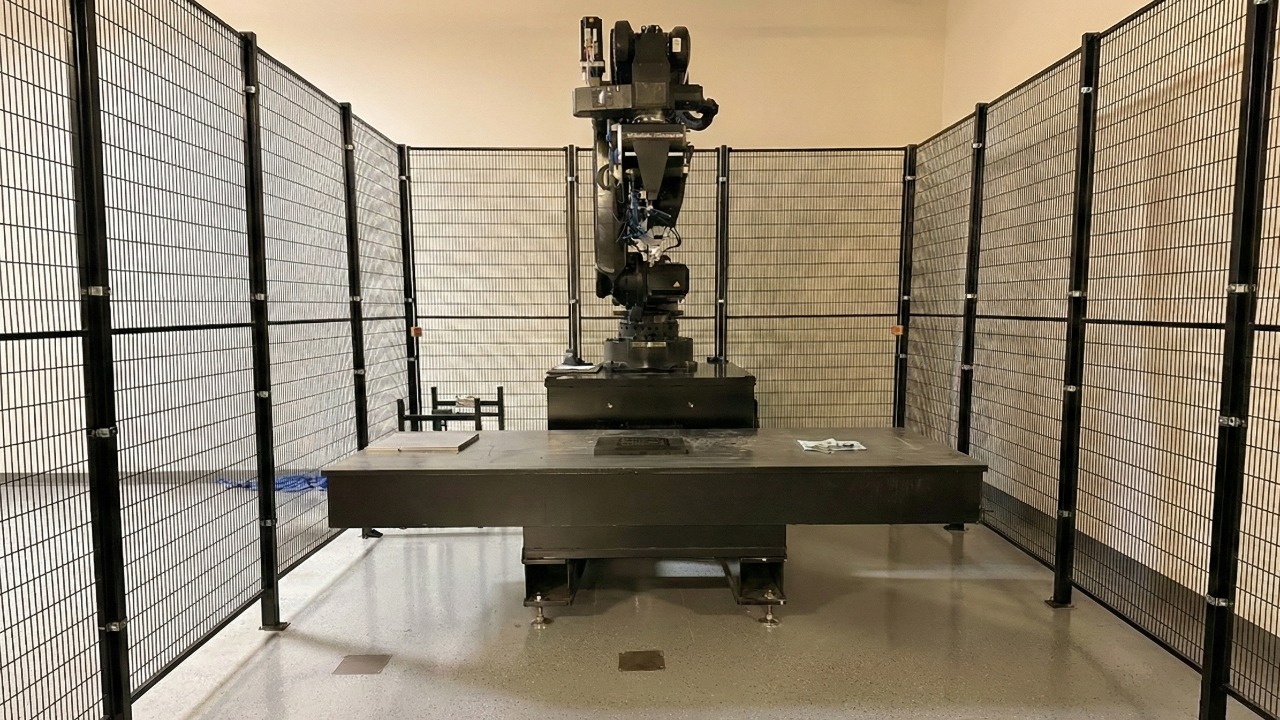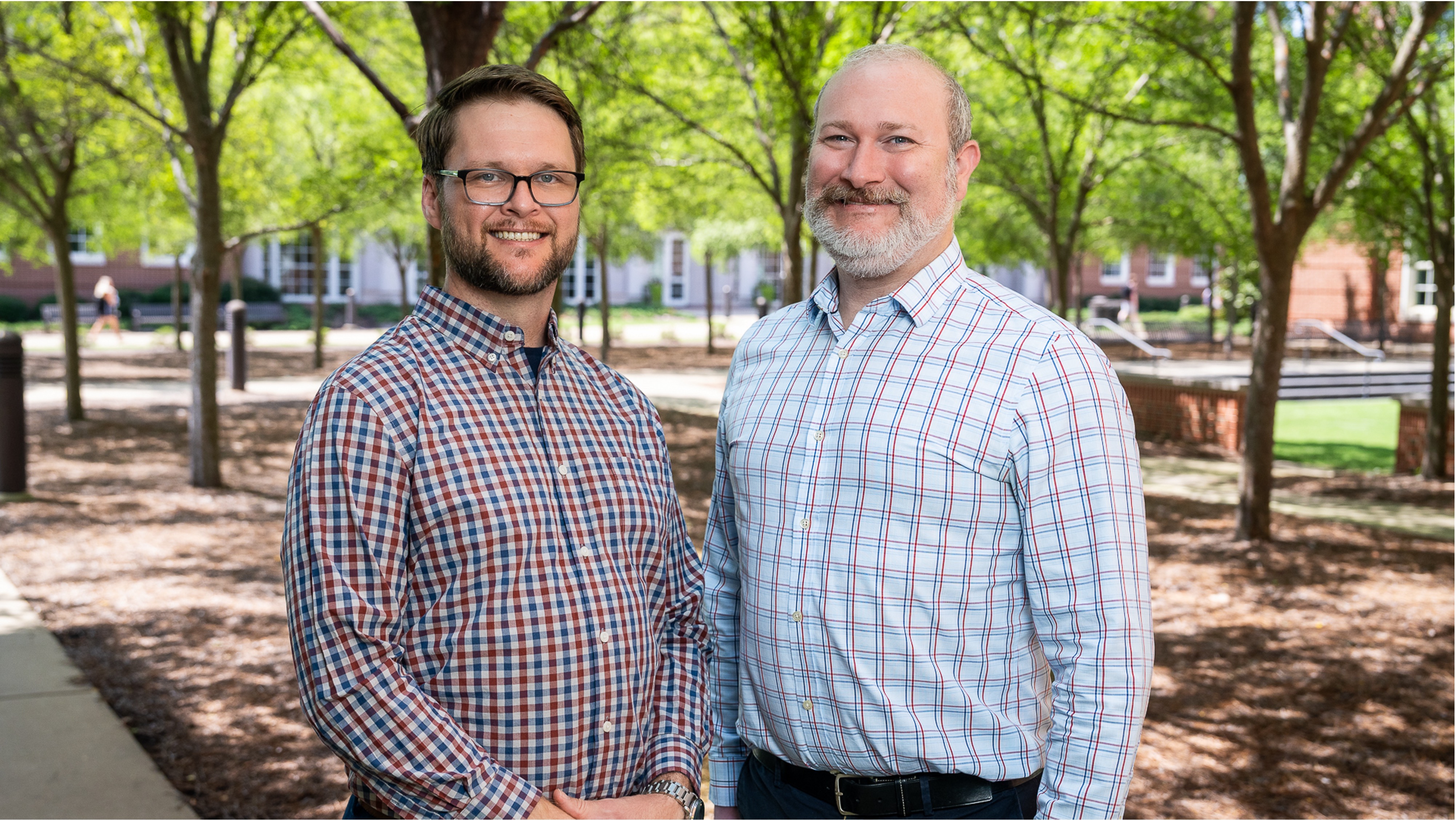Aerospace Labs allow students to have hands-on learning experiences and faculty and graduate students to conduct experiments related to their research. Recently with the addition of several new faculty, the department is actively establishing new laboratories in a variety of areas.
Aerospace Structures Reliability Lab (Dr. Wen Luo) - This lab aims to advance the understanding of rare-event failures in advanced aerospace materials and structures, and to explore, design and manufacture novel aerospace structures that are not only lightweight and strong but also highly reliable. Research positions are available for students with an interest in reliability engineering, computational and experimental structural mechanics, composite materials, and smart structures.
Polymer Mechanics Research Lab (Dr. Russell Mailen) - This lab conducts basic and applied research related to polymers and polymer composites, including shape-memory polymers and multifunctional materials. Computational and experimental research opportunities are available for students interested in finite element analysis, composite fabrication, and polymer characterization.
Advanced Materials and Processing Lab (AMPL) (Prof. Suhasini Gururaja ) - Our lab is primarily interested in understanding the long-term sustainability of composite structures in relation to their processing and secondary manufacturing effects. Analytical, numerical and experimental techniques are employed in a balanced manner to investigate the behavior of composites under various thermomechanical loading conditions. Positions are open for graduate and undergraduate students with an interest in composite processing, manufacturing, characterization and analysis.
Immersive, Interactive, Intelligent Space Dynamics( Dr. Davide Guzzetti) - This laboratory is devoted to space mission design research with an emphasis on discovering synergies across disciplines that may fundamentally improve space systems or design processes for space exploration. Our current focus is on harnessing human-machine collaboration for astrodynamics and space applications, rethinking mission design processes in extended reality and developing more autonomous space systems.
Aero-Astro Computational and Experimental Lab (Dr. Ehsan Taheri) - The ACE Lab focuses on applying optimal control principles to solve control problems related to nonlinear dynamical systems. The emphasis of our research is on the closure of theory, computation and experimental aspects of Aerospace systems while developing rapid, dependable algorithms. We solve problems in the fields of 1) astrodynamics, including low-thrust and impulsive orbital maneuvers and space trajectory design, and 2) atmospheric flight, including trajectory design and control of unmanned aerial vehicles, launch vehicles, and planetary landing vehicles.
Advanced Flow Diagnostics Laboratory ( Dr. Brian Thurow ) – This laboratory focuses on the development and application of high-speed, 3D flow diagnostics for applications involving unsteady, 3D flow fields, including flapping wing flight, shock boundary layer interactions, and combustion. Opportunities are available for students with an interest in optical diagnostics, 3D tomography and experimental fluid dynamics.
Aero-propulsion related systems modeling, simulation, and optimization ( Dr. Roy Hartfield) – This laboratory focuses on the development of models for aerodynamics, propulsion systems, and vehicle properties with the aim of producing models of systems that are of sufficient fidelity to be useful in trade and performance studies while maintaining sufficient computational efficiencies to be of practical use for large numbers of simulations.
Applied Fluids Research Group (Dr. Vrishank Raghav) – This laboratory focuses on applying fluid dynamics and experimental techniques to address challenges in aerospace and biomedical engineering. In aerospace engineering, we are interested in understanding the aeromechanics of helicopters, wind turbines and rotary UAVs. Biomedical engineering applications include cardiovascular and respiratory flows.
Combustion Physics Lab ( Dr. David Scarborough) – The primary focus of the research is to understand combustion instability problems that exist in a large variety of applications. By understanding how the acoustic and heat release processes interact, the ultimate goal is to gain a deeper understanding of the combustion process. The current projects are highly diverse, with current studies focused on topics ranging from Liquid Rocket Engine combustion to wildland fire mitigation research.
Vortex Dynamics and Basic Fluid Flows (Dr. Anwar Ahmed) – Research in the lab utilizes a water tunnel and wind tunnel, with an emphasis on vortical flows of bluff body wakes, jets and unsteady aerodynamics of delta wings, synthetic jets and flow control. Aero-optics of boundary layers in compressible and incompressible flows is also of interest.
Advanced Propulsion Research Laboratory (Dr. Joseph Majdalani) – This laboratory focuses on the development and application of mathematical modeling and simulation techniques to enhance the performance and stability of large combustors and propulsive systems, with a special emphasis on swirl-driven liquid and hybrid rocket engines. Other areas include internal flowfield and combustion instability analyses of solid rocket motors. We are presently engaged in modeling wall-bounded cyclonic flowfields, acoustic instability and upper-stage vortex rocket engines. Opportunities are available for students interested in mathematical and computational modeling of simulated rocket systems.
Computational Fluids Group (Dr. Nek Sharan) - This group develops computational methods and models for turbulent mixing, combustion and fluid-structure interaction simulations, with applications in aerodynamics and propulsion. Other topics of interest include the integration of data-driven methods with high-performance computing to enhance flow predictions and formulate reduced-order representations. The research utilizes parallel numerical solvers and codes executed on state-of-the-art supercomputers. Opportunities are available for students interested in numerical methods, parallel programming and fluid flow physics.
Reacting Flow Diagnostics Laboratory (Dr. James Michael) – This laboratory develops and applies advanced laser spectroscopy and optical diagnostics to characterize high-speed propulsion and combustion environments. These applications present significant measurement challenges, including the presence of non-equilibrium, multiphase flows and rapid transients. Opportunities are available for students with an interest in experimental spectroscopy and combustion.
Vehicle Systems, Dynamics, and Design Lab (VSD2L) ( Dr. Imon Chakraborty) – Research in this lab focuses on (i) modeling, simulation, and analysis of various vehicle systems, (ii) modeling, simulation and analysis of overall vehicle flight dynamics and (iii) sizing and performance tradeoffs related to the early design phases of aerospace vehicles. Funding opportunities are available for qualified and motivated graduate students pursuing research in the above areas. Motivated undergraduate students interested in gaining research experience are also strongly encouraged to contact us.
Recent Research News

Auburn acquires next-generation 3D carbon fiber composites printer for hypersonic research
12/16/25 7:45 PM
Auburn University’s Applied Research Institute (AUARI) in Huntsville is adding some serious fiber to its diet.

#GINNing Podcast: Flight Fitness Instructor
12/12/25 2:00 PM
Aerospace engineering graduate student Mijan Rahman's research may focus on pilot fatigue. But trust us, the latest episode of the best podcast in higher education ain't no snooze fest.

Aerospace engineering associate professor to track orbits in cislunar space
11/24/25 8:00 AM
Davide Guzzetti, associate professor of aerospace engineering, is developing new mathematical tools to map and track spacecraft in cislunar space under a three-year AFOSR grant.

Two Auburn engineering students receive USRA Distinguished Undergraduate Award
11/13/25 3:00 PM
Auburn engineering students Catherine Franco and Eirik Mulder have been named 2025 USRA Distinguished Undergraduates, marking Auburn’s first recipients of the award.

Students' awesome research ideas celebrated at college's third AUSome Science in 60 Seconds
11/3/25 10:00 AM
Presented by the Council of Engineering Graduate Students, AUSome Science in 60 Seconds tasked students to create videos and explain their projects in one minute or less.

Auburn Engineering faculty receive NSF grant for undergraduate summer research program
10/23/25 3:00 PM
Auburn Engineering will host a 10-week NSF-funded Research Experience for Undergraduates starting summer 2026, focusing on transport phenomena.

